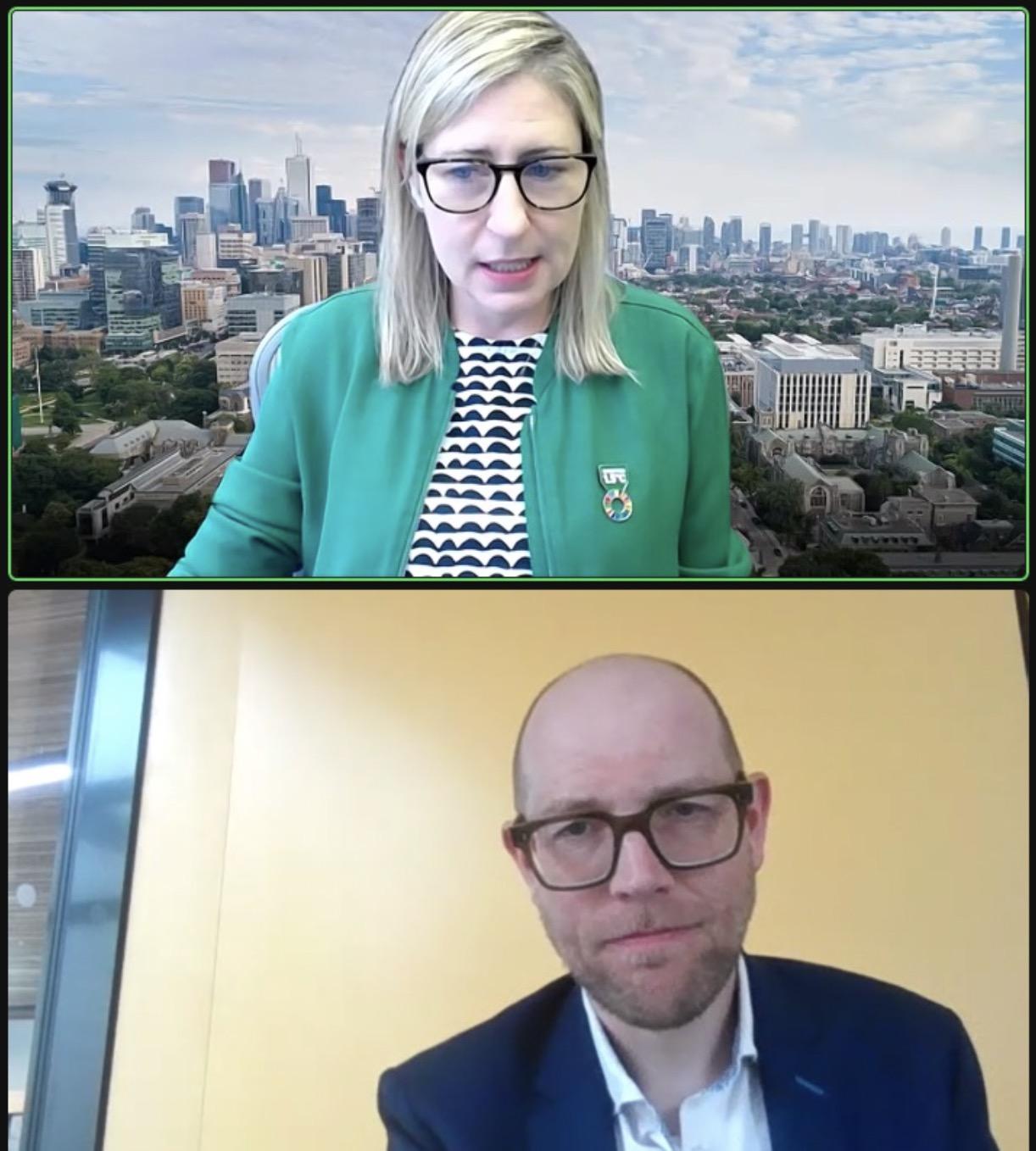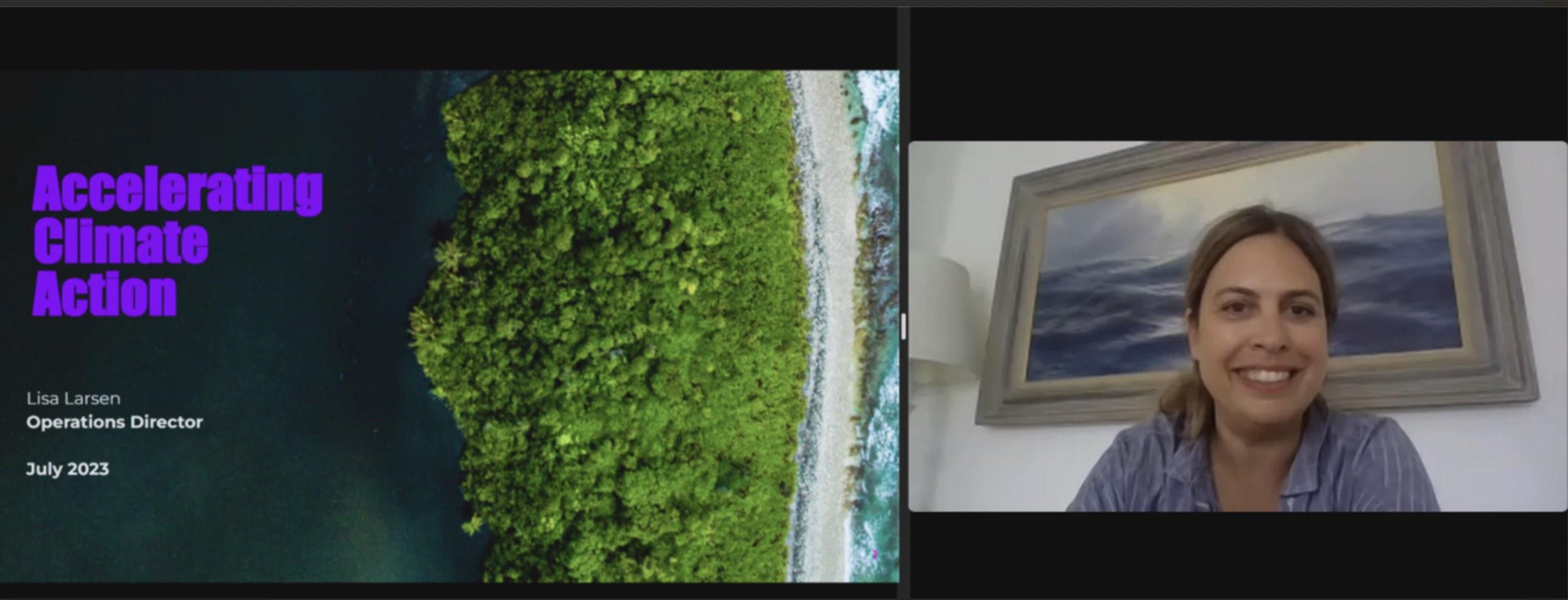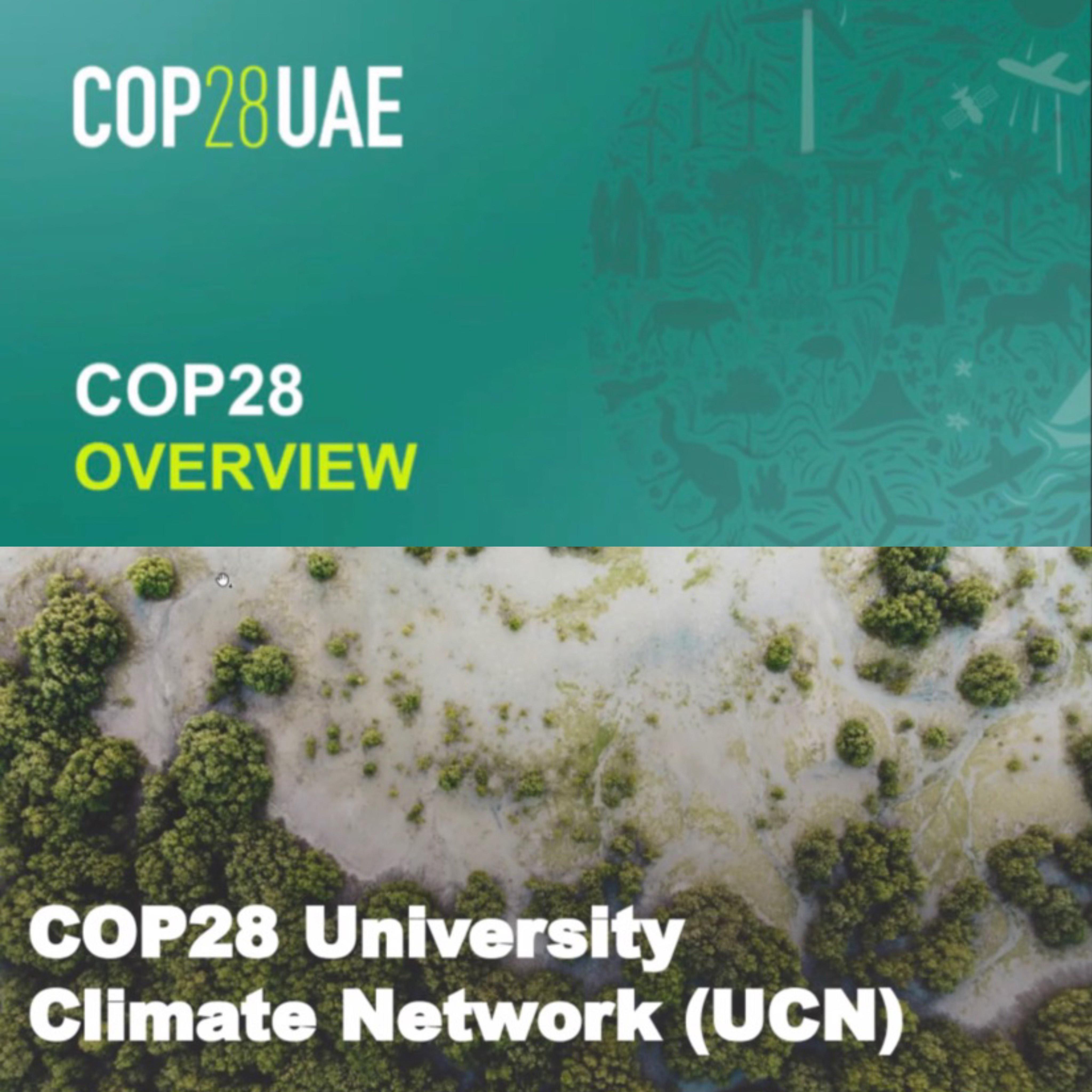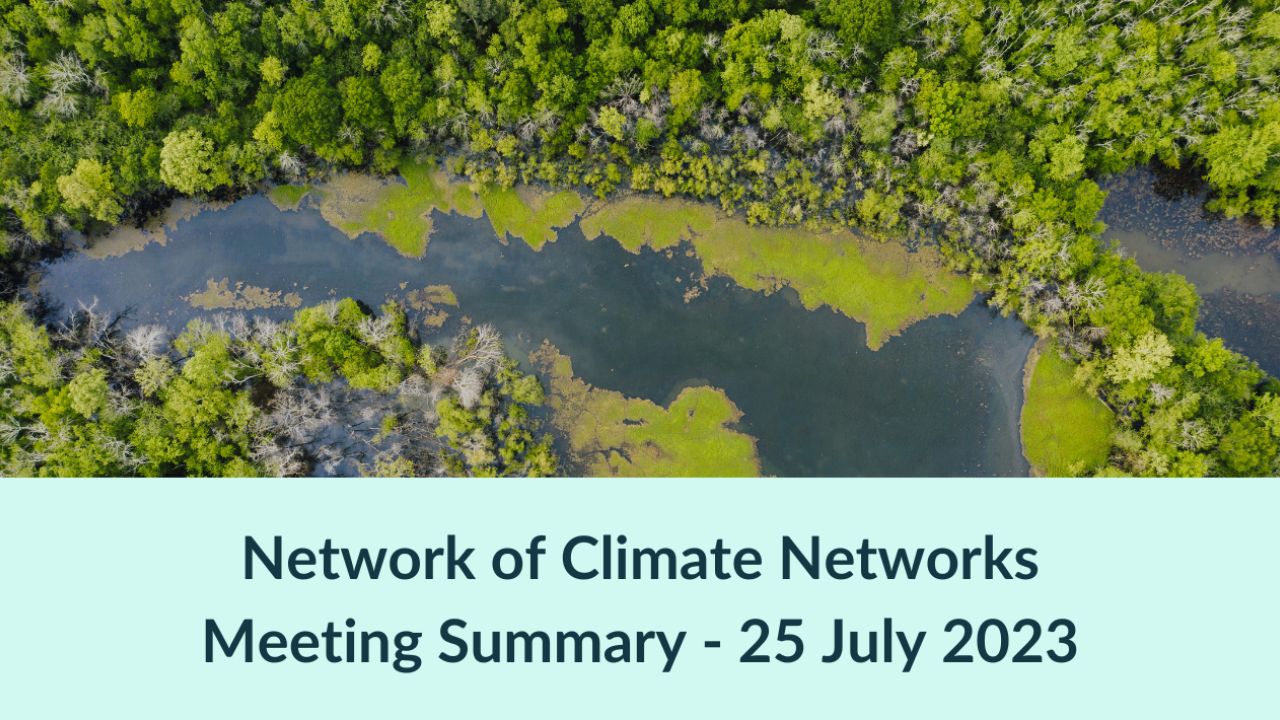The third meeting of the Higher Education Climate Network of Networks (NoN) took place in July, and was attended by 24 representatives from higher education institution (HEI) networks around the world, as well as key partners from the Climate Champions Team, COP28 Presidency Team, and UAE Universities Climate Network (UCN). Participants of the meeting agreed that HEI networks need to enhance cross-network connectivity, facilitate information sharing, and strengthen engagement with key stakeholders beyond the education sector to accelerate the implementation process of international environmental objectives and resolutions.

Co-conveners Steve Davison, Director of Strategy from Cambridge Zero at the University of Cambridge, and Kristy Faccer, Director of the Secretariat of the President’s Advisory Committee on Environment, Climate Change and Sustainability at the University of Toronto, began the meeting by emphasising the goal of NoN: to build a global climate action community that improved connectivity among HEI networks and increase their impact within and beyond the HE sector. They drew attention to three core issues: the need for better oversight and understanding of what the HEI climate network ecosystem looks like; the need for coordinated engagement with other non-state actor coalitions through the Marrakech Partnership and other international platforms; and the role of HEIs in supporting capacity building.
The network representatives were joined by Lisa Larsen, Director of Operations for the CC Team, Rose Armour, Senior Advisor of Education Cross-Sector Partnerships in the COP28 Presidency Team, and Suparna Mathur, Senior Advisor at New York University- Abu Dhabi (NYUAD) and Co-Chair of UAE UCN.

Lisa set the tone by underscoring the significance of non-party stakeholders in fulfilling the Paris Agreement (PA) and contributing to the Marrakech Partnership. Lisa highlighted the CC team’s role in enabling systemic transformation through the mobilisation and alignment of non-party stakeholder groups. She also announced two pro-bono roles currently seeking HEI applicants, who will help elevate the voice and impact of the HE sector into climate action processes. This is the first time the CC team is creating a specific place for the HE sector within their own team.

Rose reinforced Lisa’s statement that COP28 has put priority on the education sector and encourages more engagement of the HEI networks. Rose discussed the many activities and opportunities being put in place by the COP28 Host Country team to encourage movement between the blue and green zones and to create a new hub for education and research in the Green Zone. She highlighted thematic days and opportunities for programming and participation by HEI networks.

Additionally, Rose drew attention to the COP28 thematic days, the final calendar of which was released in the last few weeks. HEI networks, in particular, could submit proposals or participate in the Youth, Children, Education, and Skills day on December 8th.
Suparna Mathur introduced the establishment of the UAE UCN as a way for UAE institutions to connect with counterparts on and at COP and engage directly with international governments before and after the conference. Suparna outlined her interest in supporting other network representatives at COP28 and building an inclusive space for HEI networks, including through increasing representation from the Global South. The emphasis on equitable representation was seconded by Mizan Khan, LUCCC.
Other issues discussed included the significance of integrating research and innovations of HEIs into the actual negotiation process at COP and the implementation process after COP and maximising the opportunity for HEI attendees to the conference through webinars and other information in advance (Melissa Goodall Brown, ISCN, and Beth Martin, RINGO).
Mizan, Eva Vazquez Costas, PCCB, and Kristy drew particular attention to the issue of capacity building and engaging youth as capacity recipients as well as the role of academic institutions (and non academic collaborators) in production, generation, and transmission of knowledge.
The meeting closed with plans to share relevant follow ups after the meeting, convene again later in the year and at COP28, and a request for attendees to support the network mapping exercise currently underway.
Note: Networks represented at the meeting include COP28 Presidency Team, UAE Universities Climate network (UCN) and COP28 Engagement Team, Climate Champions, Alliance of World Universities (U7+), Research and Independent Non-Governmental Organization Constituency (RINGO), International Sustainable Campus Network (ISCN), Second Nature (University Climate Change Coalition [UC3], Climate Leadership Network [CLN]), Least Developed Countries University Consortium on Climate Change (LUCCC), The Alliance for Sustainability Leadership in Education (EAUC), Global Alliance of Universities on Climate (GAUC), the UK Universities Climate Network (UUCN), UNFCCC Capacity Building Team, Asian Universities Alliance (AUA), Italian University network for Sustainable Development (RUS), Association of Pacific Rim Universities (APRU), Association of Commonwealth Universities (ACU), and International Universities Climate Alliance (IUCA).



